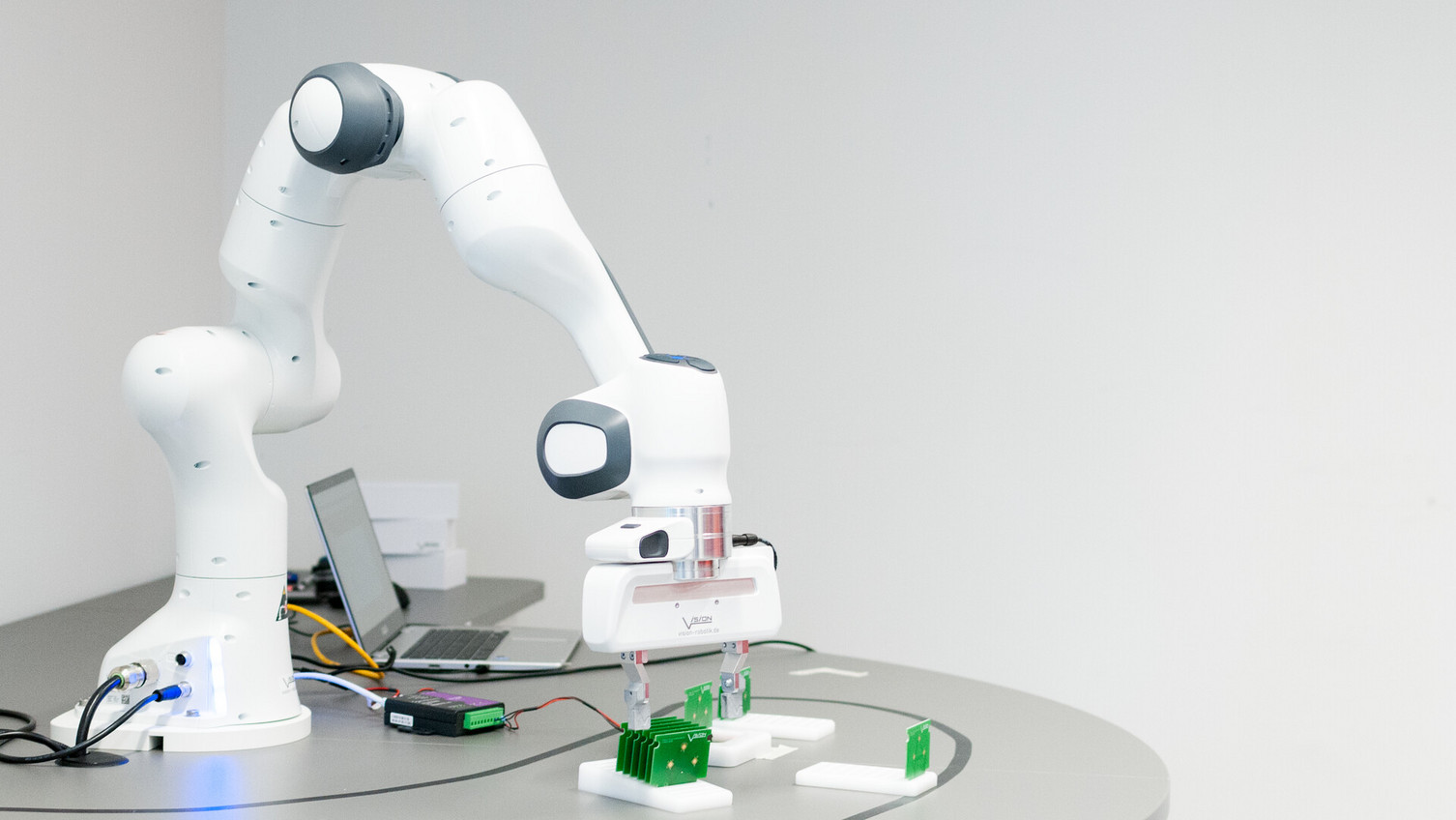RoboNord: Thinking Algorithmically
2022-04-25 The cooperation project promotes the development of skills in dealing with robotics as well as artificial intelligence and is aimed at young people, students and professionals.
There are still industrial workers who spend eight hours a day folding boxes, sorting screws or feeding machines with the same workpiece over and over again. "These monotonous jobs are not only stressful for people, they also waste their talents," says Nora Heinig-Niemeyer. The research assistant hopes that uniform work will soon only be carried out by robots. However, this would not make humans superfluous: "Someone has to operate the robots." This is exactly where the RoboNord project comes in. A 2019 study by the European Commission shows how robotics and artificial intelligence will have a strong and far-reaching impact on the amount, type and organisation of work as well as on the skills of employees in the future. But there is a lack of so-called robonatives, i.e. people who deal with the challenges of Industry 4.0 as a matter of course.
"Many users do not think algorithmically. A robot usually takes the shortest path and follows straight routes," explains Nora Heinig-Niemeyer. The RoboNord university didactic cooperation project trains algorithmic thinking: A robot arm can be operated intuitively via two buttons. Users first guide the device by hand and programme a sequence of movements. "If I haven't thought from point to point, the computer can't execute the movement as desired. Test persons can check their programming immediately by letting the robot arm perform the movement automatically," says Nora Heinig-Niemeyer.
Digitalisation and the introduction of newer means of operation such as robotic systems, AI, Industry 4.0 occupy the Alliance for Skilled Workers as well as a large number of companies or associations, IHK, HWK, vocational and higher education institutions and especially Leuphana University Lüneburg. RoboNord makes it possible for young people, students and employees of regional companies to get started in and learn more about robotics by operating the robot factory. The training courses are evaluated and continuously developed. In addition, a regional "Robonatives" network in the north is to be created within the project, which includes schools, vocational schools and universities, but also regional companies.
In May, Nora Heinig-Niemeyer will offer eight robotics training courses as part of the "Studieren probieren" programme for school students.
The following dates are also planned for the spring:
16.05. 16-18 h "Introduction to collaborative robotics".
25.05. 14-16 h "Collaborative robotics in practice".
02.06. 14-16 h "Introduction to collaborative robotics".
06.06. 16-18 h "Collaborative robotics in practice".
The number of participants is limited, so please register with Nora Heinig-Niemeyer.
Further training courses are possible by personal arrangement.
RoboNord is funded by the European Social Fund and the state of Lower Saxony. The project is also supported by the Lüneburg-Wolfsburg Chamber of Industry and Commerce, the Lüneburg Business Development Agency, the Lüneburg Business Forum and the Lüneburg-Northeast Lower Saxony Employers' Association.
RoboNord is a cooperation between the Robokind Foundation and Leuphana University Lüneburg. Those responsible for the project at Leuphana University are Dr Anthimos Georgiadis, Professor of Process Measurement/Intelligent Systems, Dr Lin Xie, Junior Professor of Business Informatics, in particular Operations Research, as well as Dr Nicolas Meier (Cooperation Service) and Andrea Japsen, Head of the Cooperation Service.

